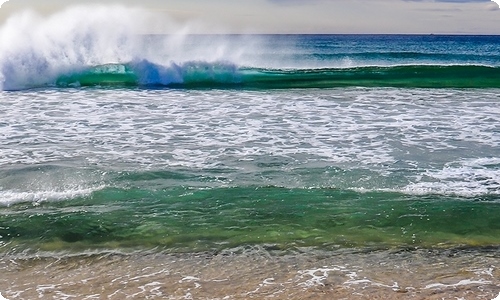六年级下学期英语常用词汇

六年级下学期英语常用词汇
导语:哪儿有勤奋,哪儿就有成功。下面是小编为大家整理的,篝火晚会方案,想要知更多的资讯,请多多留意CNFLA学习网!
一、名词复数规则
1. 一般情况下,直接加-s,
如:book-books, bag-bags, cat-cats, bed-beds
2. 以s. x. sh. ch结尾,加-es,
如:bus-buses, box-boxes, brush-brushes, watch-watches
3. 以“辅音字母 y”结尾,变y为i, 再加-es,
如:family-families, strawberry-strawberries
4. 以“f或fe”结尾,变f或fe为v, 再加-es,
如:knife-knives Leaf——leaves
5.不规则名词复数:
man-men, woman-women, policeman-policemen, policewoman-policewomen,
child-children
foot-feet,.tooth-teeth
fish-fish, people-people, Chinese-Chinese, Japanese-Japanese
补充:photos 因为photo是photograph的简写。 复数是photographs,简写是photos。 photo 不同于以o 结尾的词,不能套用o 结尾的词的复数变化方法
名词的复数形式通常是在单数名词后加s:
day,days天,白天
dog,dogs狗
house,houses房屋论坛
在词尾p,k或f音之后加的s读为/s/。除此之外s读/z/。词尾是ce,ge,se或ze的词之后加s时,该词的读音要加上一个音节(/Iz/)。
其他复数形式
1、以字母o,ch,sh,ss或x结尾的单词,在词尾加es构成其复数:tomato,tomatoes西红柿 brush, brushes刷子
church,churches教堂
kiss,kisses吻
box,boxes箱,盒
但以字母o结尾的外来词或缩写词的复数形式是只加s:dynamo,dynamos发电机
kilo,kilos公斤
kimono,kimonos和服
photo,photos照片
piano,pianos钢琴
soprano,sopranos女高音歌手
词尾是ch,sh,ss或x的词后面加es时,该词的读音要加上一个音节(/Iz/)。
2、 以y结尾但y前为辅音的名词在构成复数时,先把y去掉再加ies:
1
baby,babies婴儿
country,countries国家
fly,flies苍蝇
lady,ladies女士
以y结尾但y前为元音的名词在构成复数时,直接加s:boy,boys男孩
day,days天
donkey,donkeys驴子
guy,guys家伙
3、 有12个以f或fe结尾的名词在构成复数时,去掉f或fe加ves。这些词是:
calf小牛
half半
knife刀
leaf叶子
life生命
self自身
thief贼
wife妻子
wolf狼
例如:
loaf,loaves
wife,wives
wolf,wolves
4、 有些名词用改变无音的方法来构成其复数形式:
foot,feet,英尺,脚
man,men男人
mouse, mice老鼠
tooth,teeth牙齿
woman,women女人
但是,child的复数是children
5、 名词fish通常没有复数形式,虽然有fishes这一形式,但不常用。
deer(鹿)和sheep(羊)没有复数形式:
6、集合名词如crew,family,team等用单数或复数动词都可以;如果认为这个词表示的是一个群体或单位,可用单数动词:
Our team is the best.
我们这个队是最好的。
如果认为它表示的是这个队的所有成员,就用复数动词:
Our team are wearing their new jerseys.
我们这个队的队员们都穿着新运动衫。
写出下列各词的`复数
I ( we ) him ( them ) this ( these ) her ( their )
watch ( watches ) child ( children ) photo (photographs / photos ) diary (diaries )
day ( days ) foot ( feet ) book ( books ) dress ()
tooth ( teeth ) sheep ( sheep )
man ( men ) woman ( women )
2
二、一般现在时
一般现在时基本用法介绍
【No. 1】一般现在时的功能
1.表示事物或人物的特征、状态。如:The sky is blue.天空是蓝色的。
2.表示经常性或习惯性的动作。如:I get up at six every day.我天天六点起床。
3.表示客观现实。如:The earth goes around the sun.地球绕着太阳转。
一般现在时的构成
1. be动词:主语 be(am,is,are) 其它。如:
I am a boy.我是一个男孩。
2.行为动词:主语 行为动词( 其它)。如:
We study English.我们学习英语。
当主语为第三人称单数(he, she,it)时,要在动词后加
【No. 2】一般现在时的变化
1. be动词的变化。
否定句:主语 be not 其它。
如:He is not a worker.他不是工人。
一般疑问句:Be 主语 其它。
如:-Are you a student?
-Yes. I am. / No, I'm not.
非凡疑问句:疑问词 一般疑问句。如:Where is my bike?
2.行为动词的变化。
否定句:主语 don't( doesn't ) 动词原形( 其它)。如:
I don't like bread.
当主语为第三人称单数时,要用doesn't构成否定句。如:
He doesn't often play.
一般疑问句:Do( Does ) 主语 动词原形 其它。如:
- Do you often play football?
- Yes, I do. / No, I don't.
当主语为第三人称单数时,要用does构成一般疑问句。如:
- Does she go to work by bike?
- Yes, she does. / No, she doesn't.
动词 s的变化规则
1.一般情况下,直接加-s,如:cook-cooks, milk-milks
2.以s. x. sh. ch. o结尾,加-es,如:guess-guesses, wash-washes, watch-watches, go-goes
3.以“辅音字母 y”结尾,变y为i, 再加-es,如:study-studies
一般现在时用法专练:
一、 写出下列动词的第三人称单数
drink ________ go _______ stay ________ make ________
look _________ have_______ pass_______ carry ____
come________ watch______ plant_______ fly ________
study_______ brush________ do_________ teach_______
wash_______
3
二、用括号内动词的适当形式填空。
1. He often ________(have) dinner at home.
2. Daniel and Tommy _______(be) in Class One.
3. We _______(not watch) TV on Monday.
4. Nick _______(not go) to the zoo on Sunday.
5. ______ they ________(like) the World Cup?
6. What _______they often _______(do) on Saturdays?
7. _______ your parents _______(read) newspapers every day?
8. The girl _______(teach) us English on Sundays.
9. She and I ________(take) a walk together every evening.
10. There ________(be) some water in the bottle.
11. Mike _______(like) cooking.
12. They _______(have) the same hobby.
13. My aunt _______(look) after her baby carefully.
14. You always _______(do) your homework well.
15. I _______(be) ill. I’m staying in bed.
16. She _______(go) to school from Monday to Friday.
17. Liu Tao _______(do) not like PE.
18. The child often _______(watch) TV in the evening.
19. Su Hai and Su Yang _______(have) eight lessons this term.
20. -What day _______(be) it today?
- It’s Saturday
三、现在进行时
1.现在进行时表示现在正在进行或发生的动作,也可表示当前一段时间内的活动或现阶段正在进行的动作。
2.现在进行时的肯定句基本结构为be 动词ing.
3.现在进行时的否定句在be后加not。
4.现在进行时的一般疑问句把be动词调到句首。
5.动词加ing的变化规则
1.一般情况下,直接加ing,如:cook-cooking
2.以不发音的e结尾,去e加ing,如:make-making, taste-tasting
3.假如末尾是一个元音字母和一个辅音字母,双写末尾的辅音字母,再加ing,如:run-running, stop-stopping
现在进行时专项练习:
一、写出下列动词的现在分词:
play________ run__________ swim _________make__________
go_________ like________ write________ _ski___________
read________ have_________ sing ________ dance_________
put_________ see________ buy _________ love____________
live_______ take_________ come ________ get_________
stop_________ sit ________ begin________ shop___________
二、用所给的动词的正确形式填空:
1.The boy __________________ ( draw)a picture now.
2. Listen .Some girls _______________ ( sing)in the classroom .
4
3. My mother _________________ ( cook )some nice food now.
4. What _____ you ______ ( do ) now?
5. Look . They _______________( have) an English lesson .
6.They ____________(not ,water) the flowers now.
7.Look! the girls ________________(dance )in the classroom .
8.What is our granddaughter doing? She _________(listen ) to music.
9. It’s 5 o’clock now. We _____________(have)supper now
10.______Helen____________(wash )clothes? Yes ,she is .
四、将来时理论及练习
一、概念:表示将要发生的动作或存在的状态及打算、计划或预备做某事。句中一般有以下时间状语:tomorrow, next day(week, month, year„),soon, the day after tomorrow(后天)等。
二、基本结构:①be going to do; ②will do.
三、否定句:在be动词(am, is, are)l后加not或情态动词will后加not成won’t。 例如:I’m going to have a picnic this afternoon.→ I’m not going to have a picnic this afternoon.
四、同义句:be going to = will
I am going to go swimming tomorrow(明天). = I will go swimming tomorrow. 练习:
填空。
1. 我打算明天和朋友去野炊。
I_____ _______ _________ have a picnic with my friends.
I ________ have a picnic with my friends.
2.我们将要学习英语
We _____ _______ _________ learn English.
We ________ learn English.
五、一般过去时
1.一般过去时表示过去某个时间发生的动作或存在的状态,常和表示过去的时间状语连用。一般过去时也表示过去经常或反复发生的动作。
2.Be动词在一般过去时中的变化:
⑴am 和is在一般过去时中变为was。(was not=wasn’t)
⑵are在一般过去时中变为were。(were not=weren’t)
3.句中没有be动词的一般过去时的句子
否定句:didn’t 动词原形,如:Jim didn’t go home yesterday.
动词过去式变化规则:
1.一般在动词末尾加-ed,如:work__-worked , cook-cooked
2.结尾是e加d,如:live____lived
3.末尾只有一个元音字母和一个辅音字母的重读闭音节,应双写末尾的辅音字母,再加-ed,如:stop-stopped
4.以“辅音字母 y”结尾的,变y为i, 再加-ed,如:study-studied
5.不规则动词过去式:
5
am,is-was, are-were, do-did, see-saw, say-said, give-gave, get-got, go-went, come-came, have-had, eat-ate, take-took, run-ran, sing-sang, put-put, make-made, read-read, write-wrote, draw-drew, drink-drank, swim-swam, sit-sat
过去时练习
写出下列动词的过去式
is\am_________ plant________ are ________
drink_________ play_______ go________ make ________
does_________ dance________ worry________ ask _____
taste_________ eat__________ put ______
kick_________ pass_______ do ________
Be动词的过去时练习(1)
Name ____________ No. ______ Date __________
一、 用be动词的适当形式填空
1. I _______ at school just now.
2. He ________ at the camp last week.
3. We ________ students two years ago.
4. They ________ on the farm a moment ago.
5. Yang Ling ________ eleven years old last year.
6. There ________ an apple on the plate yesterday.
7. There ________ some milk in the fridge on Sunday.
8. The mobile phone _______ on the sofa yesterday evening.
一、用be动词的适当形式填空
1. I ______ an English teacher now.
2. She _______ happy yesterday.
3. They _______ glad to see each other last month.
行为动词的过去时练习(2)
Name ____________ No. ______ Date __________
一、用be动词的适当形式填空
1. I ______ (watch) a cartoon on Saturday.
2. Her father _______ (read) a newspaper last night.
3. We _________ to zoo yesterday, we _____ to the park. (go)
4. ______ you _______ (visit) your relatives last Spring Festival?
5. ______ he _______ (fly) a kite on Sunday? Yes, he ______.
6. Gao Shan _______ (pull) up carrots last National Day holiday.
7. I ____________ (sweep) the floor yesterday, but my mother ______.
8. What ______ she _______ (find) in the garden last morning? She __________ (find) a beautiful butterfly.
六、人称代词和物主代词
主格 宾格 形容词性 名词性
I me my mine
you you youryours
he him his his
she her her hers
itit its its
6
we us our ours
they them theirtheirs
习题
一.用所给词的适当形式填空
1. That is not _________ kite. That kite is very small, but _________ is very big. ( I )
2. The dress is _________. Give it to _________. ( she )
3. Is this _________ watch? (you) No, it’s not _________ . ( I )
4. _________ is my brother. _________ name is Jack. Look! Those stamps are _________. ( he )
二、用am, is, are 填空
1. I ______ a boy. ______ you a boy? No, I _____ not.
2. The girl______ Jack's sister.
3. The dog _______ tall and fat.
4. The man with big eyes _______ a teacher.
5. ______ your brother in the classroom?
6. Where _____ your mother? She ______ at home.
7. How _______ your father?
8. Mike and Liu Tao ______ at school.
9. Whose dress ______ this?
10. Whose socks ______ they?

文档为doc格式



